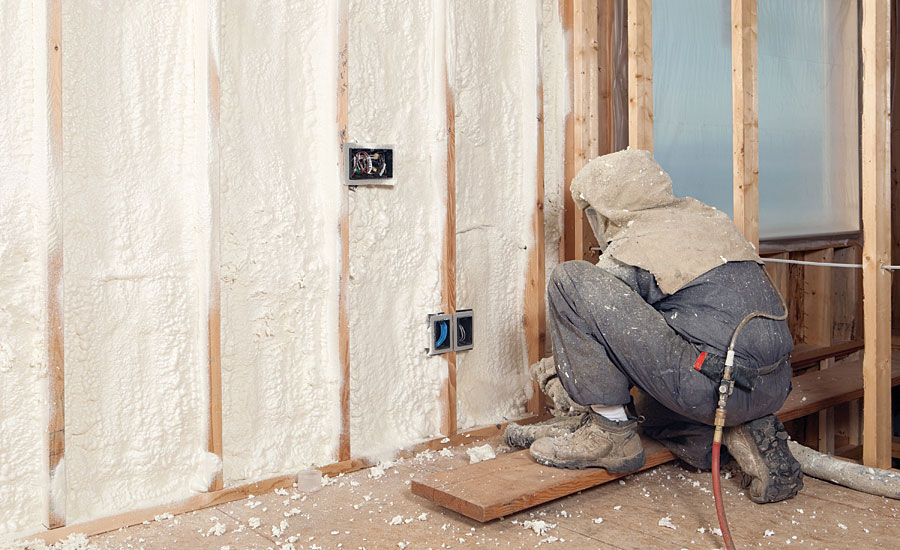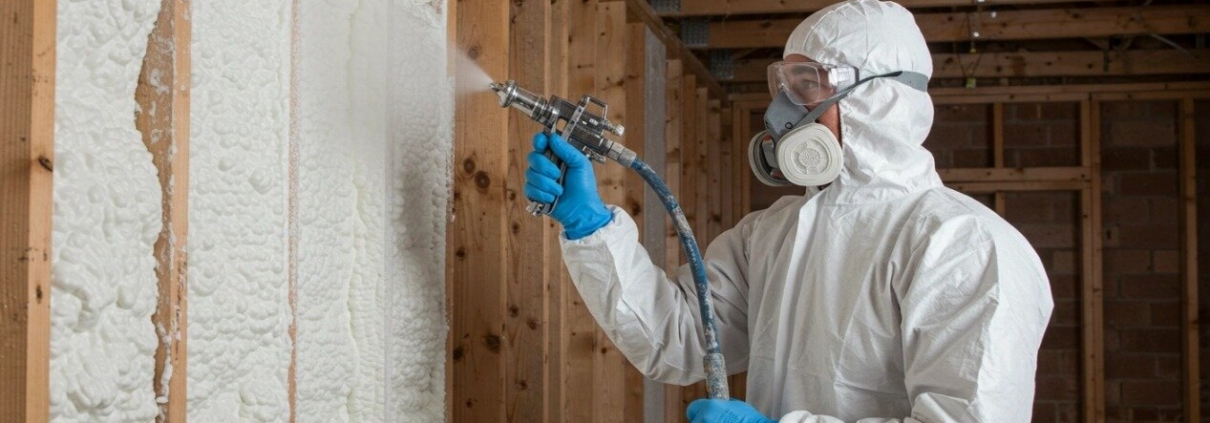How Does Spray Foam Insulation Last for Decades?
Energy bills that never seem to go down, drafty rooms in both summer and winter, and insulation that seems to “wear out” after only a few years—these are problems many Atlanta homeowners and business owners face. Traditional materials like fiberglass or cellulose often settle, absorb moisture, or degrade, leaving your building less protected than you thought. Fortunately, spray foam insulation offers a distinct advantage. Known for its durability, spray foam can last for decades when installed by experienced insulation professionals. In this article, you’ll learn why this type of insulation stands the test of time, how it supports long-term comfort and energy savings, and why working with reliable spray foam experts in Atlanta ensures your investment pays off.
Why Spray Foam Insulation Holds Up for Decades
Spray foam insulation creates a permanent seal that doesn’t shift or sag over time. Unlike traditional insulation that can settle or break down, spray foam bonds directly to surfaces and forms an airtight barrier. Its ability to form such a robust and permanent seal makes it one of the most high-performance insulation options available for both residential and commercial buildings.
Closed-Cell vs. Open-Cell Foam Longevity
- Closed-cell spray foam: Extremely dense, resists water, and adds structural strength to walls and roofs. Its lifespan often exceeds 30 years with minimal maintenance.
- Open-cell spray foam: Softer and lighter but still highly effective at sealing air leaks. It also lasts decades, especially in attics and interior walls where moisture isn’t a major concern.
Resistance to Common Insulation Failures
Spray foam doesn’t settle like blown-in insulation, doesn’t hold moisture like fiberglass, and doesn’t invite pests to nest. These qualities allow it to maintain R-value and sealing power long after other materials fail.

The Role of Proper Installation in Lifespan
The product itself is durable, but the installation makes all the difference. Poor application can leave gaps, cause uneven curing, or shorten its effectiveness. Choosing local spray foam firms in Atlanta with experience in spray foam ensures your insulation performs at its best, as they understand the unique climate challenges of the region.
Signs of Professional-Grade Foam Insulation
- Even, consistent application across all surfaces
- Proper curing with no odor or shrinkage
- Full coverage around joists, wiring, and pipes
- Attention to moisture management in crawl spaces and attics
When installed correctly, spray foam becomes a one-time investment that rarely needs replacement.
How Spray Foam Performs Over the Years
Spray foam isn’t just about keeping warm or cool today—it’s about performance that holds steady over time. To illustrate its lasting effectiveness, here’s a comparison of spray foam against other insulation types over a 25-year period:
| Insulation Type | Average Lifespan | Risk of Settling | Moisture Resistance | Energy Efficiency Retention |
|---|---|---|---|---|
| Fiberglass Batts | 10–15 years | High | Low | Moderate |
| Cellulose Blown-In | 15–20 years | Medium | Low | Moderate |
| Spray Foam (Closed-Cell) | 30+ years | None | High | High |
| Spray Foam (Open-Cell) | 25+ years | None | Medium | High |
Energy Savings that Last
Because spray foam maintains its seal, it prevents air leakage for decades. This stability reduces strain on HVAC systems, helping both homes and businesses in Atlanta lower long-term energy costs.
Spray Foam in Different Building Areas
Each part of a building has unique challenges, and spray foam adapts to them all.
Attics and Rooflines
In Atlanta’s humid summers and variable winters, attics are a prime spot for energy loss. Spray foam locks in conditioned air and prevents outside humidity from seeping in.
Crawl Spaces and Floors
Moisture in crawl spaces often ruins traditional insulation. Closed-cell spray foam resists water, keeping the underside of homes dry and protected.
Walls and Commercial Structures
For commercial spaces and multi-family units, spray foam provides professional-grade insulation that improves indoor comfort and reduces sound transfer.
Maintenance and Long-Term Care
While spray foam is renowned for its longevity and minimal upkeep, adopting a few simple practices will help ensure it continues to deliver optimal performance for decades:
Periodic Inspections
Every few years, have spray foam specialists inspect attics or crawl spaces for any signs of unusual wear, roof leaks, or pest damage in surrounding materials.
Addressing Building Changes
If major renovations, electrical work, or plumbing updates open up insulated areas, new spray foam may be needed to restore the seal.
Supporting Systems
Air sealing and spray foam work best when HVAC systems and ventilation are properly maintained. This balance keeps insulation working efficiently for years.
Conclusion: Why Spray Foam Stands the Test of Time
Spray foam insulation lasts for decades because it doesn’t settle, degrade, or lose its seal the way traditional materials do. It’s a one-time investment that continues delivering energy savings, comfort, and building protection year after year. For Atlanta homes and businesses, choosing residential spray foam professionals with proven expertise ensures the job is done right the first time, securing a comfortable and energy-efficient future for your property.
Makeover Insulation: Your Trusted Atlanta Spray Foam Team
Makeover Insulation helps homeowners and businesses improve comfort and efficiency with expert spray foam solutions. From the attics to the crawl spaces, its team of spray foam specialists ensures every project delivers long-term results.
📞 Call (470) 664-5300 today or email sales@makeoverinsulation.com to schedule an inspection and discover how spray foam can protect your property for decades.
FAQs
How long can spray foam insulation actually last in a home?
Spray foam insulation can last 25 to 30 years or more, often outliving traditional insulation materials. Its ability to resist settling, moisture, and pests helps it retain performance for decades.
Does Atlanta’s humidity affect spray foam insulation lifespan?
Closed-cell spray foam resists moisture absorption, making it ideal for Atlanta’s humid climate. Open-cell foam also performs well when installed correctly in attics and interior walls.
Can spray foam improve comfort in both homes and commercial spaces?
Yes, spray foam works for both residential and commercial buildings. It helps regulate indoor temperatures, reduces drafts, and supports better HVAC efficiency.
What makes spray foam a better long-term investment than fiberglass or cellulose?
Spray foam doesn’t sag, compress, or lose its air seal. It continues to deliver high R-value and air-tight insulation long after other materials degrade.
Do I need regular maintenance on spray foam insulation?
Spray foam requires little maintenance. Periodic inspections ensure surrounding structures remain sound, but the insulation itself typically stays intact for decades.
Reviewer: Ava Clark contributed her expert input, drawing from 6 years of experience working with spray foam insulation teams. Her insights, particularly on customer trust and communication, helped shape key aspects of this post.




Leave a Reply
Want to join the discussion?Feel free to contribute!